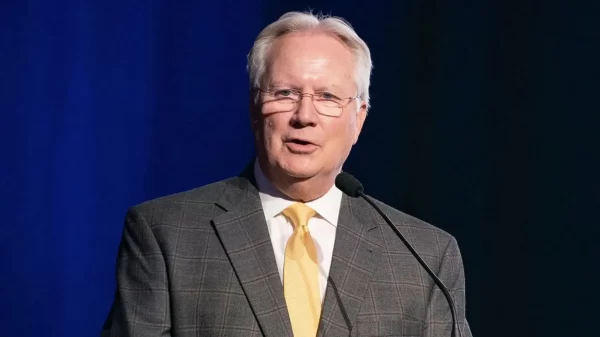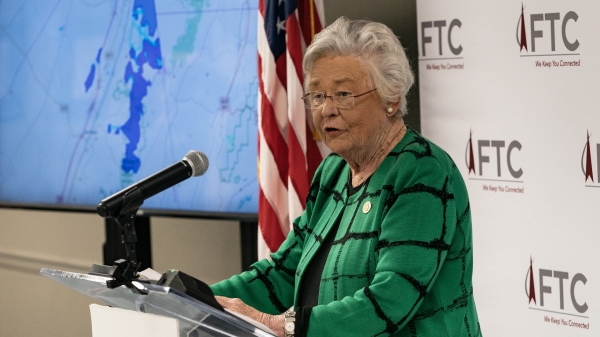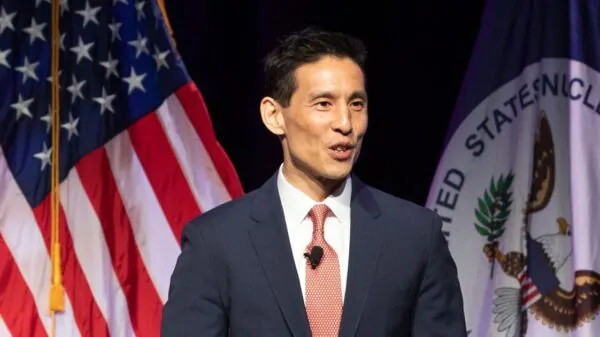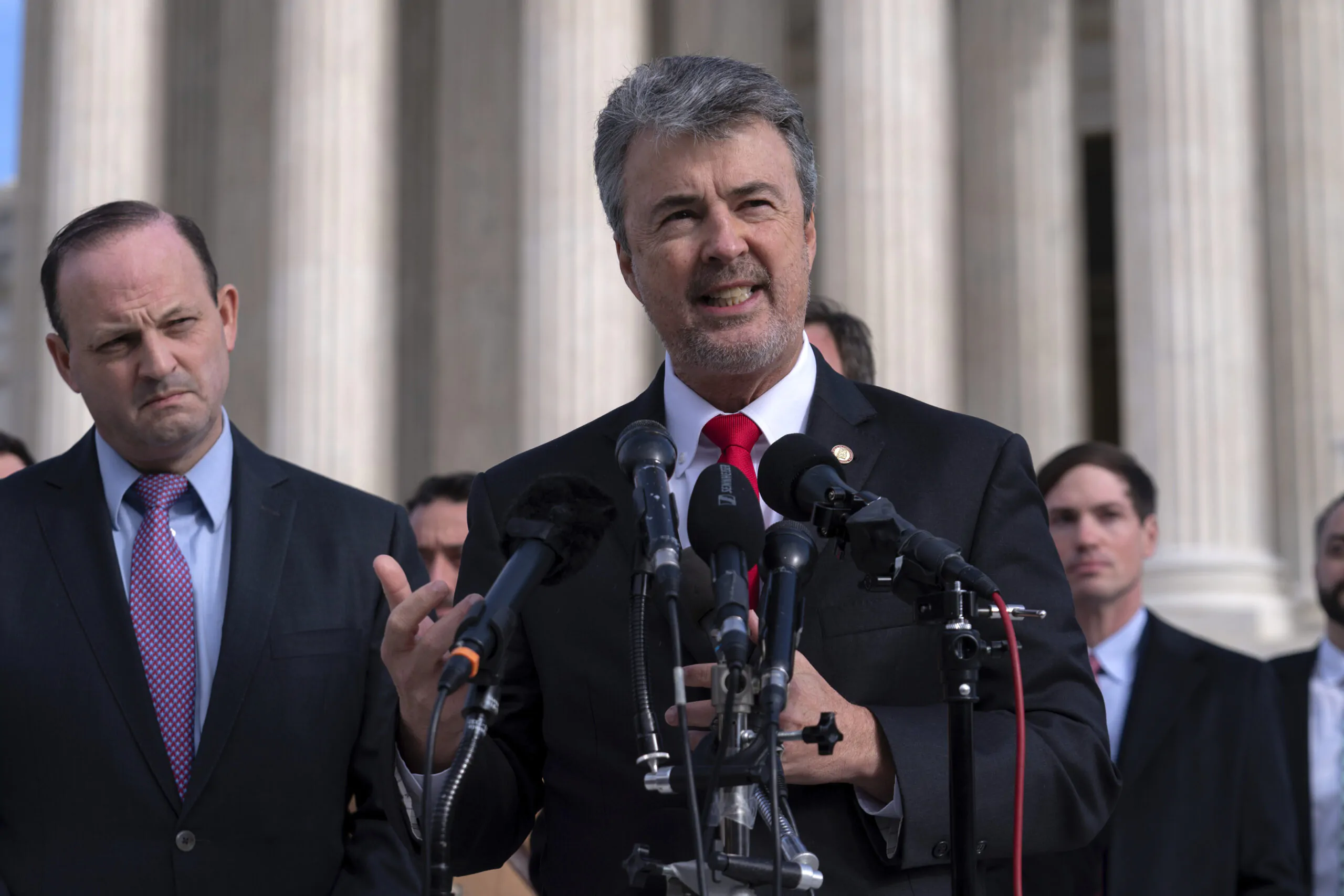The Trump administration is currently embroiled in a legal battle against the state of Illinois and Democratic Governor JB Pritzker over the president’s continued attempt to deploy members of the Texas National Guard into the city of Chicago.
While the White House is arguing that the president has the authority to use federal troops to address crime and illegal immigration in the city, state and local officials have decried the move as unnecessary, unconstitutional and politically motivated. Earlier this week, a federal judge blocked a similar attempt by Trump to deploy National Guardsmen to Portland, Oregon, but the administration is fighting to overturn that ruling in the Ninth Circuit Court of Appeals.
As the legal battle continues, several Republican state attorneys general are now seeking to help the administration justify its unwanted deployment of the National Guard into Democrat-run states and cities.
On Wednesday, Iowa Attorney General Brenna Bird filed an amicus brief in the Illinois lawsuit arguing that the Trump administration has the constitutional authority to send federal troops into Chicago. Seventeen other Republican attorneys general signed onto the brief in support, including Alabama’s Steve Marshall. The state attorneys general for Montana, Oklahoma, South Carolina, Arkansas, Florida, Georgia, Idaho, Indiana, Kansas, Louisiana, Mississippi, Missouri, Nebraska, South Dakota, Texas and West Virginia signed onto the brief as well.
The attorneys general specifically argue that the Biden administration pursued “illegal open-border immigration policies” which “flooded the country with illegal aliens, including criminals… violent international gang members, and suspected ISIS terrorists” and that the Trump administration is now reasserting federal law by pursuing mass deportations. They go on to assert that the deployment of National Guardsmen to cities like Chicago is necessary in order to protect federal Immigration and Customs Enforcement officials from “activists” and “violent” protestors who are speaking out against the administration’s mass deportation agenda.
“President Trump’s deployment of a small number of National Guard members to defend against
this lawlessness is responsible, constitutional, and authorized by statute,” the brief states.
Beyond this assertion, the attorneys general also argue that the anti-ICE protests in Chicago and across the country are a part of a “coordinated effort” by “Antifa-aligned groups” to “undermine the federal government.” The brief also mentions the September shooting at a Dallas ICE field office that left two detainees dead as evidence of the need for increased federal protection of ICE agents and their operations.
“The President’s action of federalizing the National Guard furthers the public interest because it allows ICE agents to continue to perform their statutory duties of identifying, apprehending, and removing illegal aliens, which is the only way to protect the States from the harms caused by illegal immigration… And it protects states from the costs incurred by violent protests and riots,” the brief states. “Further, allowing the federal government to quash this type of behavior at its outset sets a precedent discouraging similar behavior in other States.”
The brief concludes by urging the court to deny Illinois’ request for a temporary restraining order and preliminary injunction that would block the deployment of Texas National Guardsmen into the state.
In addition to signing the amicus brief, Attorney General Marshall also appears to have provided President Trump with a letter seemingly citing President John F. Kennedy’s federalization of the Alabama National Guard during Governor George Wallace’s infamous “Stand in the Schoolhouse Door” as precedent to justify the current administration’s attempt to mobilize National Guardsmen against a governor’s wishes. Trump posted a partial image of the letter signed by Marshall to his Truth Social account Wednesday.
While Marshall and his fellow Republican attorneys general are working to justify the Trump administration’s use of National Guardsmen in Illinois, a group of former high-ranking Army and Navy officers filed their own amicus brief Thursday, encouraging the court to limit the president’s power to employ federal troops in domestic operations.
“Domestic deployments that fail to adhere to [the Posse Comitatus Act] threaten the Guard’s core national security and disaster relief missions; place deployed personnel in fraught situations for which they lack specific training, thus posing safety concerns for servicemembers and the public alike; and risk inappropriately politicizing the military, creating additional risks to recruitment, retention, morale, and cohesion of the force,” lawyers for the former military leaders wrote.
Even some Republicans, like Oklahoma Governor Kevin Stitt, have begun to break with Trump over the issue.
“We believe in the federalist system — that’s states’ rights,” Stitt said Thursday in an interview with The New York Times. “Oklahomans would lose their mind if Pritzker in Illinois sent troops down to Oklahoma during the Biden administration.”
Stitt went so far as to criticize Texas Governor Greg Abbott for allowing the administration to use his state’s National Guard troops for the federal deployment into Illinois.
“I was surprised that Governor Abbott sent troops from Texas to Illinois,” Stitt said. “Abbott and I sued the Biden administration when the shoe was on the other foot and the Biden administration was trying to force us to vaccinate all of our soldiers and force masks across the country.”
“As a federalist believer, one governor against another governor, I don’t think that’s the right way to approach this,” Stitt added.
The lawyers for the city of Chicago and state of Illinois certainly agree with Stitt, as they continue to argue that any deployment of the National Guard to Chicago against the wishes of Mayor Brandon Johnson and Gov. Pritzker would violate states’ rights and should be ruled unconstitutional.
“By design, state and local governments operate closer to the people they serve, allowing them to tailor their activities to their communities’ needs. Federalism is not merely an administrative arrangement; it is a structural protection of liberty,” the plaintiffs wrote in a recent filing. “When the federal government assumes a role traditionally reserved to the States, it blurs the constitutional lines that define who is responsible for public safety.”





















































